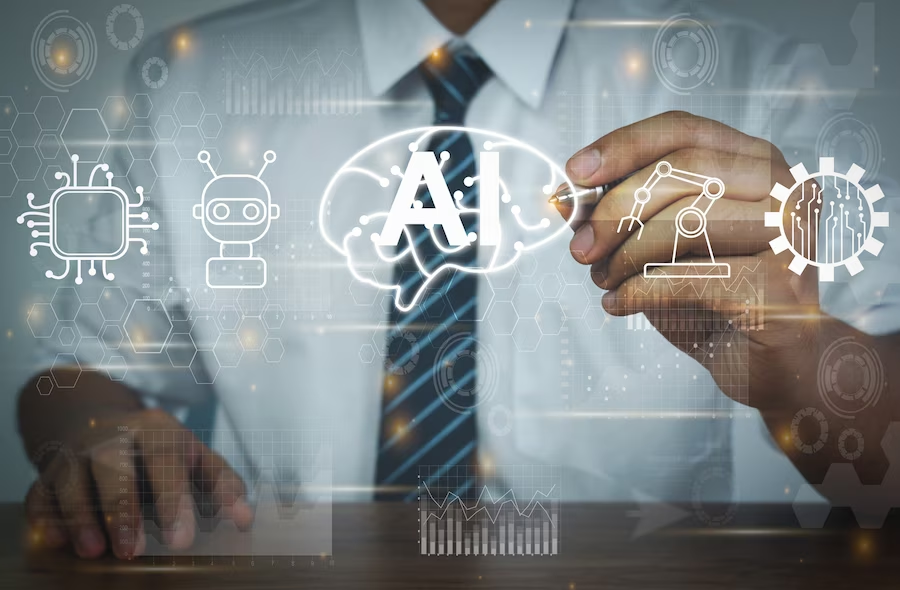Table of Contents
Artificial Intelligence (AI) has emerged as a transformative force across various industries, reshaping operations, customer experiences, and business models. From healthcare to finance, manufacturing to retail, AI services are driving innovation, efficiency, and competitiveness. In this article, we delve into the trends and insights highlighting the profound impact of AI services on industries worldwide.
1.Automation and Efficiency
One of the most significant impacts of AI services is the automation of repetitive tasks, leading to enhanced efficiency and productivity. Industries such as manufacturing, logistics, and customer service have embraced AI-powered automation to streamline processes, reduce costs, and minimize errors. For instance, robotics and machine learning algorithms are optimizing production lines, predictive maintenance schedules, and supply chain management, ultimately improving overall operational performance.
2.Personalized Customer Experiences
AI-driven personalization is revolutionizing how businesses engage with customers. By leveraging data analytics, natural language processing, and machine learning, companies can deliver highly tailored products, services, and recommendations to individual consumers. E-commerce platforms utilize AI algorithms to analyze user behavior and preferences, offering personalized product suggestions and targeted promotions. Similarly, AI-powered chatbots provide real-time assistance, resolving customer inquiries promptly and enhancing satisfaction levels.
3.Healthcare Innovation
In the healthcare industry, AI services are driving significant advancements in diagnosis, treatment, and patient care. Machine learning algorithms can analyze vast amounts of medical data, including imaging scans, genetic profiles, and clinical records, to assist physicians in making accurate diagnoses and developing personalized treatment plans. Additionally, AI-powered predictive analytics enable healthcare providers to anticipate disease outbreaks, optimize resource allocation, and improve population health management, leading to more efficient and effective healthcare delivery.
4.Financial Services Transformation
resource utilization, reducing waste, and mitigating environmental impact. In manufacturing, AI-powered predictive maintenance helps minimize energy consumption and prolong equipment lifespan, contributing to resource conservation and lower carbon emissions. Similarly, AI-driven optimization algorithms are enhancing energy distribution networks, enabling efficient power generation and consumption management, thereby promoting sustainable energy practices.
Conclusion: The widespread adoption of AI services is reshaping industries, driving innovation, and unlocking new opportunities for growth and competitiveness. From automation and efficiency gains to personalized customer experiences and healthcare breakthroughs, AI technologies are transforming the way businesses operate and interact with customers. As organizations continue to harness the power of AI, it is imperative to prioritize ethical considerations, data privacy, and inclusivity to ensure that AI-driven innovations benefit society as a whole.
